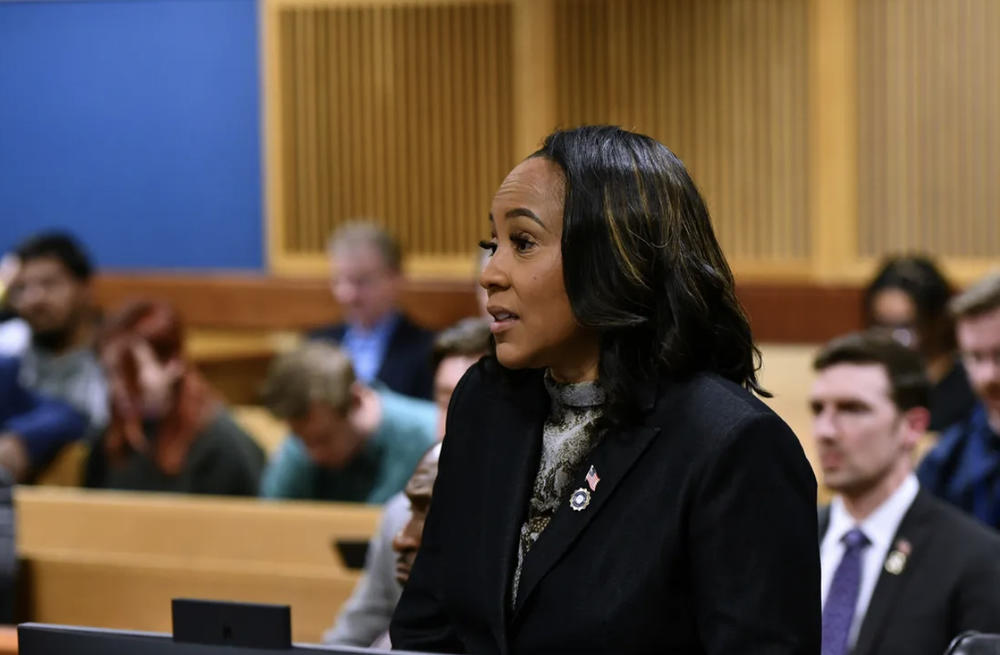
Caption
Fulton County District Attorney Fani Willis argued before Judge Scott McAfee on Nov. 21 that Harrison Floyd should’ve been sent to jail for social media posts violating his bond agreement in the Georgia 2020 presidential election interference trial.
Credit: Dennis Byron/Hip Hop Enquirer via AP

